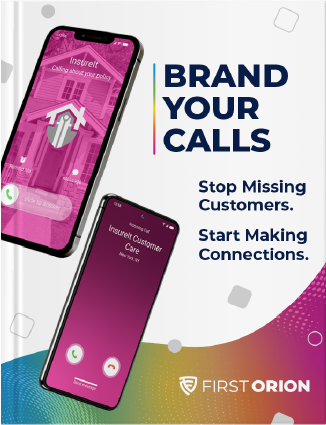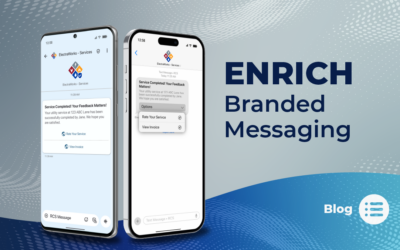By Mark Himelfarb
Chief Technology Officer and Ukraine Managing Director
If you’ve ever wondered why your legitimate business calls are getting tagged as “spam,” you’re not alone, and you’re not doing anything wrong. I talk to business owners regularly who are frustrated that their calls aren’t going through. It’s annoying, hurts your caller ID reputation, and ultimately damages customer trust and your bottom line.
That’s why I want to walk you through the reason this is happening and how you can take back control with smarter call protection.
Why do Network Carriers Tag Calls?
Network carriers have a responsibility to safeguard their subscribers from the growing number of unwanted and fraudulent calls. Whether phone number spoofing from scammers or high-volume dialing from legitimate businesses, nuisance calls are disruptive and erode trust in voice as a channel.
By tagging calls, carriers aim to reduce user frustration and help people feel confident answering the calls that matter. But unfortunately, this means your legitimate calls can get caught in the net, especially if your phone number’s reputation is weak or unverified.
Why do Legitimate Business Phone Numbers Still Get Labeled as Spam Even After Registration?
Great question. The answer is how network carriers and Mobile Analytics Engine Providers (MAEs) identify risk. These partners analyze call behavior, user complaints, and pattern data to detect spam-like activity, even if it’s coming from a real business.
Red flags include:
- Call Volume & Frequency – Large call bursts or many short calls with no answer can trigger scrutiny.
- Consumer Feedback & Reports – If users frequently block or report your number, it affects your phone number reputation.
- Call Answer Rates & Behavior – Frequent hang-ups or low engagement can lead to mislabeling.
Even with verified caller ID, inconsistent call behavior can lead to tagging. That’s why it’s key to combine number registration with strong dialing practices.
What is Phone Number Registration and Why is it Important?
Let’s start with the basics. Phone number registration is the process of submitting your business phone numbers and basic details about your business to the major carriers. Why does this matter?
It’s the foundation of building a verified caller ID and improving your caller ID reputation. When carriers can’t identify who’s calling or why, they err on the side of caution and flag it. But when your business takes the time to register, it signals trust and transparency—two things that go a long way in modern call ecosystems.
Registration alone won’t eliminate all issues, but it strengthens your call protection strategy and ensures your brand starts with a good foundation.
Phone Number Reputation Monitoring is Critical
You can’t fix your calls if you don’t know how your calls are showing up. That’s why phone number reputation monitoring is critical.
First Orion’s AFFIRM™ Reputation Monitoring lets you see exactly how your outbound numbers appear across major networks, helping you catch issues before they become real problems. Think of it as a credit score for your business phone lines.
Two Simple Steps to Reduce Negative Labeling
We keep it simple for a reason. If you want to protect your brand and make sure your calls, get answered:
- Register your numbers for free to legitimize your brand and create a verified caller ID experience for your customers.
- Follow good calling behavior to protect your brand from phone number spoofing, tagging, or call blocking.
That combo and active reputation monitoring, puts you ahead of the curve.
Final Thoughts
I’ll leave you with this: In today’s environment, even good businesses can look bad on caller ID. It’s not fair, but it is fixable. Network carriers and MAEs are working to protect consumers, but even well-meaning legitimate businesses can be flagged without phone number registration and responsible calling practices.
By registering your numbers, actively monitoring your call reputation with tools like AFFIRM™ Reputation Monitoring, and following good call practices, your business can reduce the risk of negative labeling, protect your brand, and ensure your calls reach the customers who matter most.
———–
About Mark Himelfarb
As First Orion’s Chief Technology Officer, Mark is responsible for ensuring that company stays on the cutting edge of the industry by bringing to life software and solutions powering company’s product line through innovation in both methodology and technology. Backed by his 20+ years of experience in leading software engineering and systems design teams in a variety of industries, such as financial technology, benefits industry and education, Mark takes his passion for language learning, both computer and human, and pours it into pioneering novel approaches for tackling problems that First Orion’s customers face.




